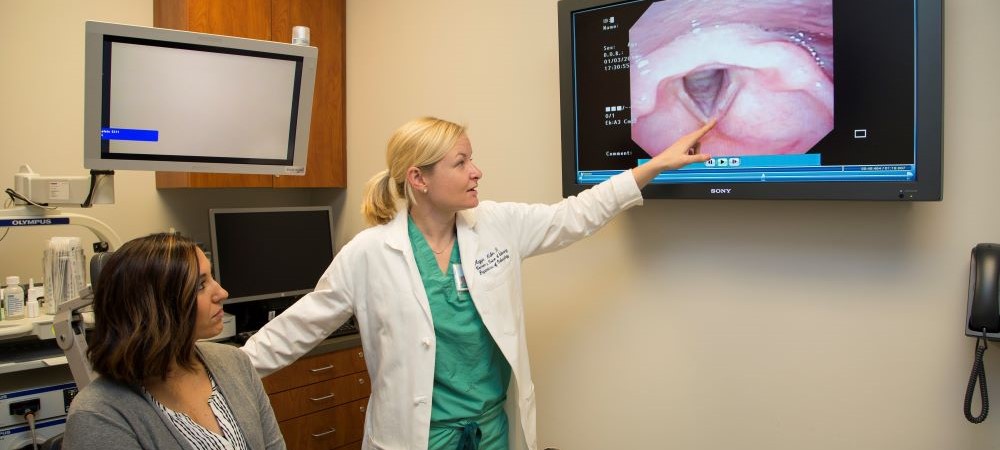Exploring the Area of Otolaryngology: What to Anticipate When You Speak With an ENT
Otolaryngology, frequently referred to as ENT, encompasses the medical diagnosis and therapy of ear, nose, and throat disorders. For those experiencing relevant problems, seeking advice from an ENT professional can give clearness and relief. Understanding what to anticipate throughout such consultations is important for effective interaction and treatment. This review will outline vital elements of the ENT experience, including usual reasons for check outs and the procedures entailed in diagnosis and therapy.

Recognizing Otolaryngology: An Overview
Otolaryngology, typically described as ENT (Ear, Nose, and Throat) medicine, is a specialized branch of medicine that concentrates on the diagnosis and therapy of conditions impacting these essential locations of the human body. This area includes a vast array of problems, consisting of those relevant to hearing, equilibrium, respiratory function, and speech. Otolaryngologists are trained to manage both surgical and medical therapies, using advanced methods and modern technologies. Their competence expands beyond standard disorders, resolving concerns such as allergic reactions, sinus infections, and hearing loss. In addition, they play a vital role in the administration of head and neck cancers cells, providing extensive care customized to private patient demands. Generally, otolaryngology remains essential for keeping health and wellness and quality of life in affected individuals.
Common Factors to See an ENT Professional
Numerous people look for the know-how of an ENT professional for a selection of reasons, reflecting the diverse nature of conditions that impact the ear, throat, and nose. Usual problems consist of persistent sinusitis, which usually causes consistent nasal blockage and facial discomfort. Allergic reactions and their connected symptoms, such as itching and sneezing, likewise trigger brows through to these professionals (Otolaryngologist). Hearing loss, whether gradual or unexpected, is one more significant reason for assessment. On top of that, individuals may look for analysis for throat problems, consisting of relentless hoarseness or ingesting problems. Sleep apnea, defined by interrupted breathing throughout rest, is frequently addressed by ENT specialists as well. Each of these problems highlights the importance of specialized care in handling intricate ENT-related wellness issues
Getting ready for Your ENT Appointment
When planning for an ENT visit, it is vital to gather pertinent information and consider any type of particular issues. People must compile a detailed clinical history, consisting of previous ear, nose, or throat problems, surgical treatments, and existing drugs. Recording signs-- such as duration, extent, and frequency-- can provide valuable insights for the ENT professional. In addition, individuals must prepare a checklist of inquiries they want to ask, making certain that all problems are attended to throughout the check out. Bringing along any kind of appropriate clinical records or test results can further aid the ENT in recognizing the patient's condition. Clients ought to confirm their consultation details, including day, time, and area, to lessen any type of final complication. Proper prep work can enhance the efficiency of the consultation and lead to much better end results.
What to Expect During the Assessment
As the examination starts, the person can anticipate to take part in an extensive discussion with the ENT specialist about their signs and symptoms and case history. The professional will certainly inquire about the period, regularity, and intensity of signs and symptoms such as hearing loss, nasal blockage, or sore throat. Additionally, the client's previous clinical problems, medications, and any appropriate Continue family history will be reviewed, helping the specialist in forming a full understanding of the individual's health and wellness. The ENT might additionally inquire about way of life elements, such as direct exposure to irritants or irritants. This open discussion develops a foundation for the assessment, ensuring that the patient's problems are addressed and setting the phase for any kind of required evaluations or referrals for treatment.
Analysis Tests and Treatments in Otolaryngology
A variety of diagnostic tests and procedures are essential in otolaryngology to properly assess and detect conditions impacting the throat, ear, and nose. Common examinations include audiometry, which determines hearing feature, and tympanometry, evaluating center ear pressure. Nasal endoscopy permits visualization of the nasal passages and sinuses, while laryngoscopy examines the throat and singing cords. Imaging methods, such as CT scans and MRIs, offer thorough views of head and neck frameworks. Allergic reaction testing might likewise be conducted to recognize triggers for sinus or respiratory problems. These analysis tools allow ENT professionals to establish a complete understanding of clients' problems, guaranteeing customized and effective monitoring plans. Appropriate diagnosis is important for successful treatment end results in otolaryngology.
Therapy Alternatives Supplied by ENT Specialists
ENT professionals use a variety of therapy alternatives customized to resolve particular problems affecting the throat, nose, and ear. These treatments range from conventional techniques, such as drug and way of living adjustments, to even more invasive procedures. For instance, allergies might be taken care of with antihistamines or immunotherapy, while persistent sinusitis might need nasal corticosteroids or sinus surgical treatment. For hearing loss, ENT specialists often suggest listening device or medical treatments like cochlear implants. In instances of throat problems, choices can consist of speech treatment or medical treatments to remove blockages. Additionally, they might give support for taking care of rest apnea, including making use of CPAP gadgets or surgical treatments. Generally, the goal is to boost individuals' lifestyle via individualized care and reliable treatment strategies.
When to Look For Follow-Up Care With an ENT
Identifying when to seek follow-up treatment with an ENT specialist is crucial for managing recurring symptoms or problems connected to ear, throat, and nose problems. Patients need to consider setting up a follow-up appointment if signs linger despite preliminary therapy, such as persistent ear linked here pain, nasal congestion, or throat pain. Adjustments in hearing, balance problems, or uncommon nasal discharge might also call for further assessment. In addition, if an individual experiences side effects from recommended medicines or has actually undergone a surgery, follow-up treatment is essential to check recuperation and address any worries. Prompt consultations can guarantee efficient monitoring of conditions, avoid possible complications, and offer comfort pertaining to one's health. Seeking follow-up care promotes positive health and wellness administration in otolaryngology.
Often Asked Concerns

What Qualifications Should I Seek in an ENT Expert?
When looking for an ENT expert, one should try to find board certification, pertinent experience, and strong person evaluations. Additionally, efficient interaction skills and a thoughtful approach can greatly boost the general treatment experience.
Exactly how Do I Pick the Right ENT for My Needs?
Selecting the appropriate ENT specialist includes examining their qualifications, experience, and client testimonials (ENT surgery). It is important to contemplate their interaction design and strategy to treatment, ensuring they line up with the individual's certain wellness demands and preferences
Are There Any Dangers Related To ENT Procedures?
The threats connected with ENT treatments might include infection, bleeding, anesthesia find an otolaryngologist near me problems, and prospective damage to surrounding structures. Individuals need to discuss these risks with their physician to understand private issues and assurance educated decisions.
Exactly How Can I Handle Anxiety Prior To My ENT Consultation?
To handle anxiety before an appointment, individuals can exercise deep breathing exercises, imagine favorable end results, prepare inquiries ahead of time, and look for assistance from good friends or family, fostering a feeling of confidence and calmness.
What Should I Do if I Experience Adverse Effects From Treatment?
If side effects from treatment take place, the person needs to immediately report them to their healthcare copyright. Changes to therapy or additional treatments may be essential to ensure safety and security and performance in managing their condition - Otolaryngology. As the examination starts, the person can anticipate to involve in an extensive discussion with the ENT expert concerning their signs and medical background. These analysis devices make it possible for ENT specialists to develop an extensive understanding of clients' conditions, making certain customized and efficient administration strategies. ENT professionals offer a range of therapy alternatives tailored to address certain problems influencing the ear, nose, and throat. When looking for an ENT specialist, one ought to look for board certification, pertinent experience, and strong person evaluations. Selecting the best ENT specialist entails reviewing their certifications, experience, and patient evaluations
Comments on “When Scheduling a Visit with an Otolaryngologist Can Help Your Well-being”